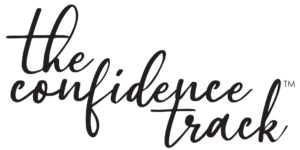
Mentorship Programs
Overview of Mentorship Programs
What is a mentorship program and why is it important for professional development and leadership growth
A mentorship program creates a one-on-one professional relationship that provides an opportunity for an employee to learn and grow from a more experienced employee. Areas of growth may include both technical and leadership skills.
Mentorship programs are important for professional and leadership growth as they provide employees with the opportunity to learn from their mentors’ experiences. Employees become more confident and competent in their roles and gain clarity on what opportunities they seek. They will likely gain exposure through the mentor’s network and learn valuable leadership skills that can open doors for advancement.
Benefits of having a mentor or being part of a mentoring program
A mentor can be your champion who is there to support you during challenges and to cheer you on to celebrate your wins. A mentor can be a sounding board who shares their knowledge and skills in order to strengthen yours. They provide constructive feedback and show you ways of strengthening key skills that will help set you apart from others. They help to instill confidence as you develop both personally and professionally.
How can I find the right mentor for me and my career goals
First, you want to have a clear understanding of what you want to get out of the mentorship experience. Is it to focus on leadership skills? Is it to get exposure to a new field or division within your company? By identifying your overall goal to have a mentor, it will help you to identify who most closely aligns with your goals.
What skills do mentors need to effectively coach their mentees?
Important skills or qualities for a mentor to have in order to be effective in their role include:
Methods that should be used in order to get the most out of a mentoring relationship
There are many things to consider on how to get the most out of your mentoring relationship:
Few tips I can utilize to become an effective mentor myself
Four tips to become an effective mentor:
Challenges associated with mentorship programs that need to be taken into consideration before starting one up.
- Time Commitment. Do both mentors and mentees have the time to commit to such a program? This is
a top reason why mentorship programs can fail. Do they have the time based on their work expectations and do
they have approval to commit the time needed? - Not setting expectations. Set clear expectations for both the mentors and mentees so they know
what their roles are, how the program will work, what the expected outcomes are, how often to meet, etc. The
more can guide them, the more successful the program will be. - Poor communication. There is a lack of effective communication between the mentor and mentee.
- Not an effective match between mentor and mentee. There is evidence that a poor mentoring
experience can be worse for the mentee than no mentoring at all. - Lack of training or guidance for mentors.
- No framework provided. A program needs a framework and schedule from which to work. A framework provides direction for the participants on what to follow. Being an ancillary program, the participants have their day jobs which are priority. The easier you make it for them, the more likely they will stay engaged.
What are the mentor programs that The Confidence Track offers to companies and organizations?
The Confidence Track works with companies and organizations to tailor a mentorship program to best meet their needs. We provide sample programs on our website.
Our programs can be held virtually, in-person or hybrid – however the company or organization sees as being most effective for their employees.
The advantage of having The Confidence Track create and facilitate your mentoring program is that it alleviates someone internally from having to run it in addition to their existing duties.
Examples of what we have integrated into our mentorship programs
Contact us today..
If you’d like to discuss how we can create an effective mentorship program for you and the professional development of your employees.
What are the best techniques for measuring success in a mentorship program?
In addition to surveying the mentors and mentees to get their candid input on how the program is going, it is recommended to establish objectives and KPIs that are meaningful to your company.
The Confidence Track recommends working with your human capital / HR analytics team to set in place the KPIs you wish to track. Examples of objectives and KPIs include:
How can businesses and organizations become successful by participating in mentor-mentee relationships that benefit both parties?
Mentorship programs offer businesses and organizations many benefits:
Some interesting statistics to keep in mind of the benefits:
According to Training Magazine, retention rates for mentees are 50 percent higher than those not mentored and that mentoring can have a greater impact on retention than salary increases.
Wellmark states that professionals who have mentors get promotions five times more often than those who do not have mentors.
A study from the American Society for Training and Development states that 71 percent of Fortune 500 companies have a corporate mentorship program. Plus, 75 percent of executives credit their mentors for helping them reach their current position.
© 2023 The Confidence Track. All rights reserved.

lisa@theconfidencetrack.com








